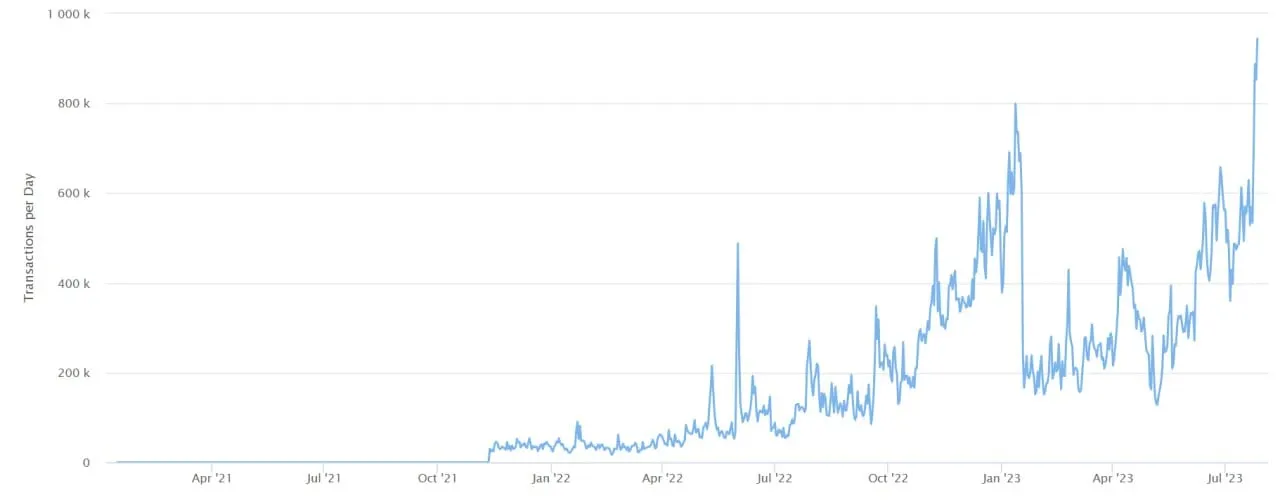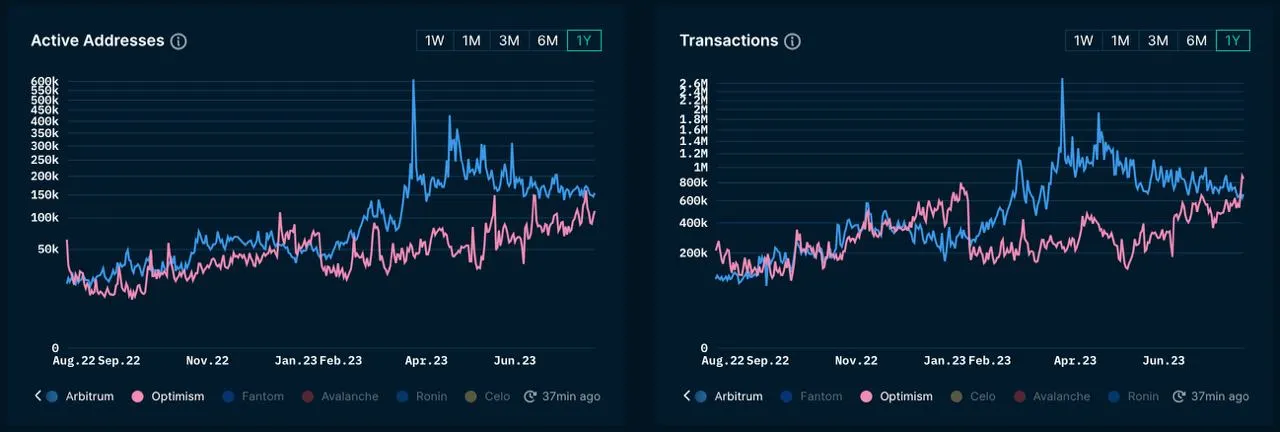Ethereum layer-2 scaling solution Optimism surpassed Arbitrum in daily transactions for the first time since January 2023, data shared by Nansen with Decrypt shows.
The spike in transaction activity was first recorded on July 24, the same day the highly anticipated Worldcoin (WLD) token went live on the Optimism mainnet.
Martin Lee, data analyst at Nansen, believes that Worldcoin's launch is likely the reason behind the spike in daily active transactions. He told Decrypt that the spike in daily active transactions “coincide” with Worldcoin's launch.
The number of transactions on the network has continued to rise since Worldcoin’s launch, reaching a new all-time high of 944,668—nearly a million transactions in a day—on Thursday, per Etherscan data.
In comparison, Arbitrum did 658,053 transactions, per Arbiscan data, on July 27.

Furthermore, Nansen’s data also reveals that the transaction spike is not an isolated event.
Lee told Decrypt that “Optimism has been on a steady uptrend since Q2 23” when examining the network’s daily active addresses.
Optimism on the rise
While both Arbitrum and Optimism layer-2 networks are leading the space with dominant share of liquidity and network activity, the latter network’s growth rate has been faster.
Arbitrum’s activity increased considerably in March 2023 following the Arbitrum airdrop.
However, Arbitrum’s activity has been dropping since then, while Optimism’s activity has been rising.

On June 6, Optimism implemented its much-anticipated Bedrock upgrade on its network, leading to a significant reduction in transaction fees by half.
Nansen's latest report highlights that Optimism now offers the lowest fees for token swapping among various layer-2 networks averaging between $0.1 and $0.12.
When comparing the fees for swapping tokens, Arbitrum charges between $0.13 and $0.20, while Polygon zkEVM, zkSync Era, and Starknet charge $0.63, $0.34, and $0.56, respectively.
Optimism’s daily activity increased while their daily gas paid has halved, which is “a testament” to the improvements in reducing gas fees after the BedRock upgrade, noted Sandra Leow in the report.
The Bedrock update also enabled building applications on the OP Stack standard.
OP Stack is a permissionless, open-source development stack that allows builders to build their own L2 following the same standard.
These chains can scale horizontally and enable secure cross-chain communication. Optimism aims to become a “superchain” amid a class of application chains built on the OP Stack.
Similar to Optimism, Arbitrum is also looking to implement a technological stack standard with Arbitrum at the base. The Arbitrum Foundation has coined the term Arbitrum Orbit to address applications built on this design.

